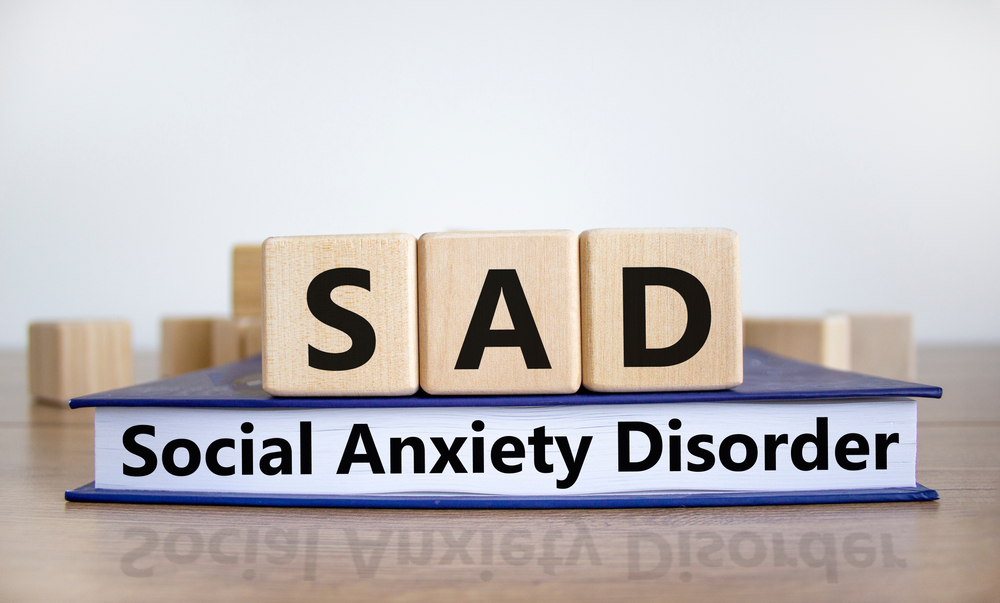Anxiety is the body’s natural response to stress. As is defined by Oxford English Dictionary, anxiety is “a feeling of worry, nervousness, or unease, typically about an imminent event or something with an uncertain outcome.” Social anxiety refers to fear or worry related to interactions in social situations. It occurs when someone is overly concerned about being humiliated, embarrassed, evaluated, or rejected by others in social situations. Each teen will have a nuanced way of internalizing, processing, and integrating the experiences that arise during adolescence. Though they once served as useful tools, without intentionally cultivating updated methods many teenagers default to ineffective, outdated coping mechanisms that no longer effectively serve them for navigating these challenges. Everyone will experience social anxiety at some point in their life, hence learning a variety of strategies to overcome social anxiety can be advantageous.
Tips To Overcome Social Anxiety
Although it may seem impossible to overcome a feared social situation, there are ways to develop new habits to help ease and overcome your social anxiety. Learning to manage social anxiety will require a mindset shift from a fixed mindset to a growth mindset. Your mindset is explained as “the assumptions and expectations you hold about yourself, your life and the situations around you.” A researcher at Stanford University, Psychologist Carol Dweck, discovered that individuals’ mindsets will predict success in most realms of life, including school, business, the arts, and social interaction. According to Dr. Dweck, having a ‘fixed mindset’ means believing that your characteristics and abilities are unchangeable. Whereas the term ‘growth mindset’ is used to describe individuals who believe that their qualities and achievements can be developed through personal effort. Shifting to a growth mindset can help you feel more comfortable in social situations and interact with others more easily. To overcome your social anxiety, consider the following suggestions:
- Start small: to build your confidence and set yourself up for success, start with a small achievable social interaction goal and gradually work your way up to more challenging situations.
- Challenge your negative, anxious thoughts: identify the anxious thoughts that surface when you think of social situations, analyze them, and challenge them to discern if your initial reaction is truly how you feel or if you are just assuming the worst.
- Focus on others, not yourself: switching from an internal to an external focus can go a long way toward reducing social anxiety.
- Explore relaxation methods: try out different relaxation tactics (e.g., meditation, journaling, listening to music, etc.) to reduce your overall anxiety levels.
- Exercise: regular exercise can not only help you remain physically fit, but also provides a natural release of endorphins, elevating your mood and reducing anxiety.
- Breathe: focus on slowing down your breath to help pull your focus away from your symptoms and onto your breath.
When not properly addressed, social anxiety in teens can lead to poor academic performance, low confidence in social situations, drug or alcohol dependence, and trouble developing or maintaining social relationships.
For Information and Support
Every family in need of mental health treatment must select a program that will best suit the needs of their family. When one member of a family struggles, it impacts everyone in the family unit. To maximize the benefits of treatment we work closely with the entire family to ensure that everyone is receiving the support they need through these difficult times. Seeking help is never easy, but you are not alone! If you or someone you know needs mental health treatment, we strongly encourage you to reach out for help as quickly as possible. It is not uncommon for many mental health difficulties to impact a person’s life, long term. Pursuing support at the beginning of one’s journey can put the individual in the best position to learn how to manage themselves in a healthy way so they can go on to live happy and fulfilling lives.
OUR KNOWLEDGEABLE ADMISSIONS TEAM CAN BE REACHED 24/7 AT INFO@PACIFICRTC.COM OR CALL: 800-531-5769 We are available to answer any questions you may have regarding mental health treatment and our residential program, anytime. Contact us today using the form to the right.






